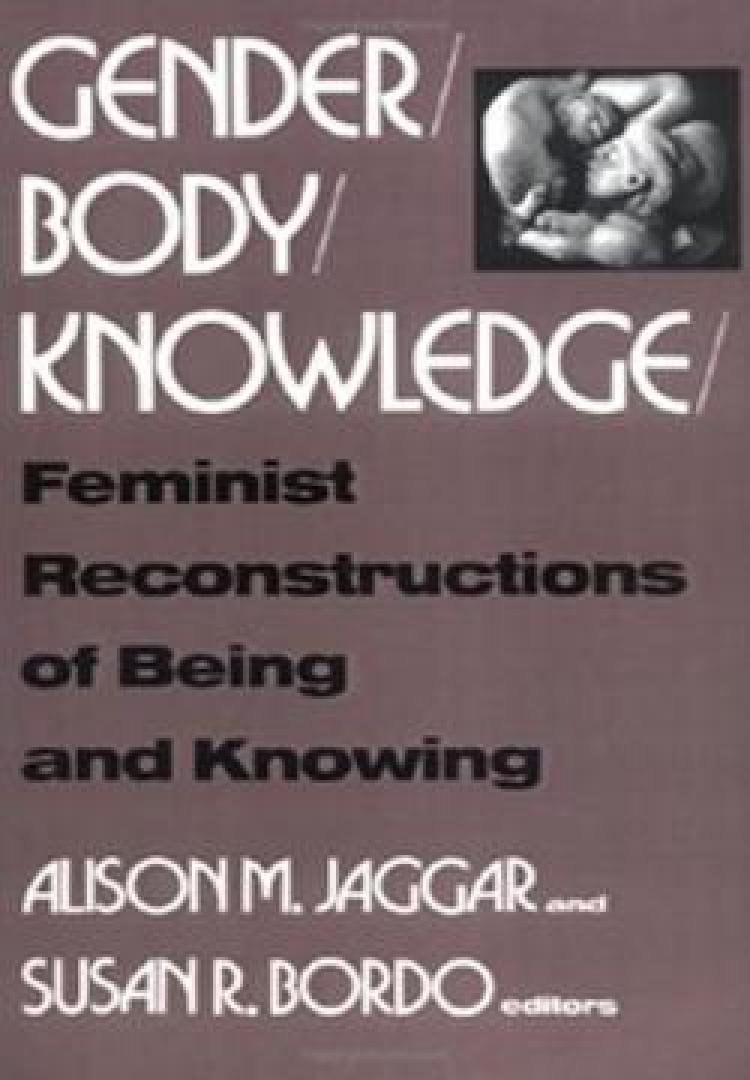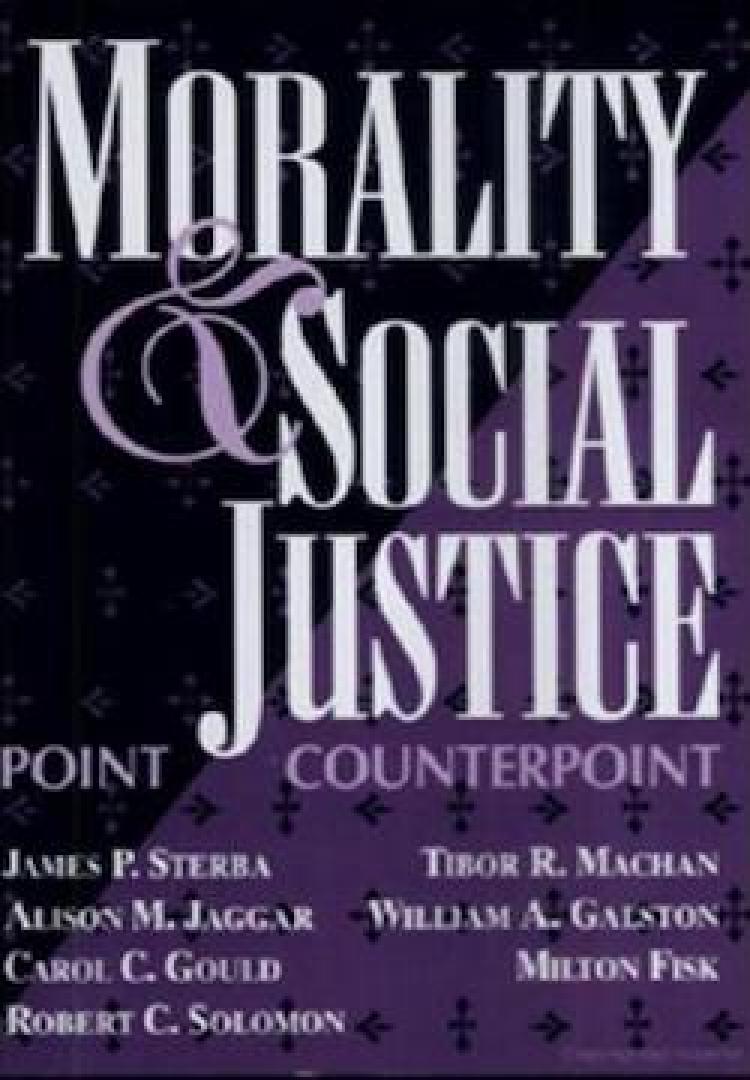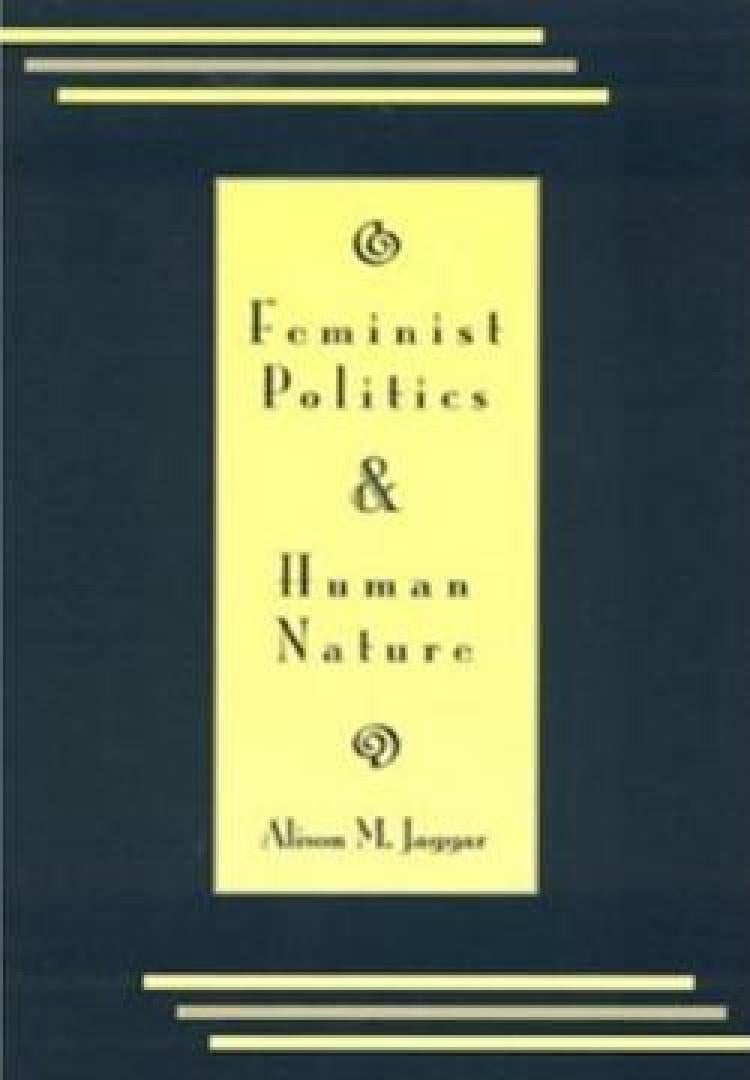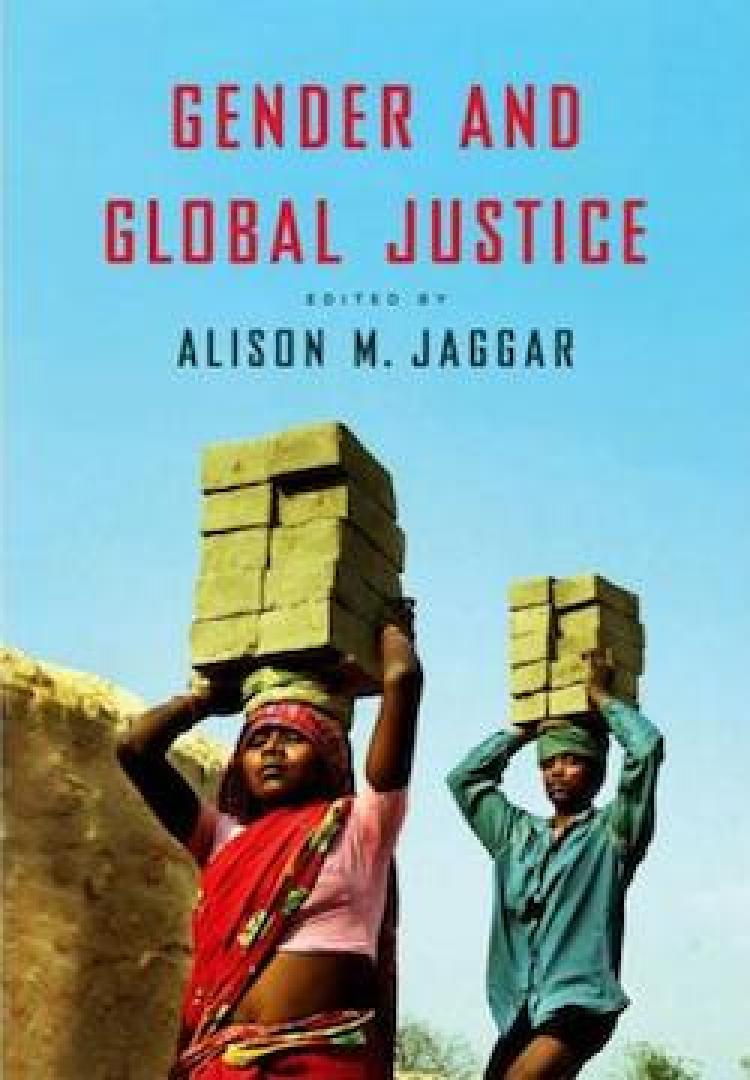In Appreciation of Dr. Alison M. Jaggar
Dr. Alison M. Jaggar, Professor Emerita of Philosophy and Women and Gender Studies at the University of Colorado Boulder, formally announced her retirement on August 31, 2020. A fellow of the American Academy of Arts and Sciences, and a CU Boulder Arts & Sciences College Professor of Distinction, Jaggar is considered the pioneer of introducing feminist concerns into philosophy. In appreciation of her work, service, mentorship, and friendship through the years, we share with you just a few stories of how much she is valued by those who have had the honor to work with her.

Moving to the University of Cincinnati the following year, Jaggar chaired the search for the first director of their new women’s studies program, one of the first in the country, while continuing to teach her class in feminist philosophy. Along with Paula Rothenberg, she co-edited the first textbook in gender studies, Feminist Frameworks (McGraw Hill 1978), which was used widely for many years, with updates in 1984 and 1993 which “gave increasing attention to intersections among gender, race, and neo-colonialism.” It was also here that she wrote her first book, Feminist Politics and Human Nature (Rowman & Allanheld, 1983), which “offered systematic philosophical analyses of second-wave feminist theory and activism.”

After nearly two decades in Ohio, Jaggar accepted a position at the University of Colorado Boulder, to teach classes in women’s studies and philosophy. In developing new courses, Jaggar began to explore controversies among feminists, including pornography, sex work, vegetarianism, and militarism, collecting readings which would become her second sole-authored book Living with Contradictions: Controversies in Feminist Social Ethics (Westview, 1994). “One of my goals with the course and project was to demonstrate that feminism is a broad movement for gender justice, within which people debate a wide range of views,” Jaggar writes.

Dr. Jaggar receiving a book put together by her advisees for her birthday several years ago. Photo courtesy Annaleigh Curtis.
In her thirty years at CU Boulder, Jaggar has branched out into the exploration of ethical theory, philosophical methodology, moral epistemology, and global justice. She has served as the chair of women’s studies, as the associate chair and graduate director of philosophy, and is an affiliate in ethnic studies. Her awards while at CU have been numerous, and include our highest honors: A&S College Professor of Distinction, the “Best Should Teach” Gold award for teaching, and the Elizabeth Gee Memorial Lectureship for advancing women, interdisciplinary scholarly contributions and distinguished teaching. As an author, her list of books and journal articles is not only impressive in volume, but in impact: “most feminist philosophy of the past forty or so years is in response to, or elaborating upon, her work,” notes one of her former students, Dr. Abigail Gosselin, Associate Professor in Philosophy at Regis University. Even with this legacy, her greatest impact may be on those students she has mentored through the years. As Dr. Gosselin explained, “There are many of us alumnae who worked with her and are now in tenured or tenure-track positions, and we attribute our success in large part to the academic rigor, professional opportunities, practical advice, and emotional support that she generously provided. Because they are so well prepared, Dr. Jaggar’s graduate students, most of them women, have some of the best job placements in tenure-track positions in the department.”
For Jaggar, mentoring students went far beyond mere advising – she organized potlucks for female students to give them a place to create camaraderie and gain support from one another; facilitated discussion groups for women to share their work and gain self-confidence in a heavily male-dominated discipline; encouraged students to write and publish, invited students to conference panels, celebrated birthdays, and provided opportunities to network. “I have a pleasant memory of her Seminar in Ethics course, from which papers of six graduate students in that class were accepted by a nationally prestigious philosophy conference,” remembers former student Dr. Hye Ryoung Kang. “She always encouraged her students to strive for excellence in professional growth; ultimately, this translated into success in our professional careers.”
It was Dr. Jaggar’s profound global influence on feminist philosophy that brought Dr. Kang to CU Boulder from South Korea, where she earned her second PhD in Philosophy as well as the Graduate Certificate in Women and Gender Studies. “I am particularly grateful to Professor Jaggar for her dedicated efforts for fostering inclusive climates in which every individual can flourish despite their differences and barriers. As a foreign-born, Asian female student, scholar, and instructor, I encountered more barriers and challenges than most. I believe that despite such barriers, what allowed me to flourish was her sensitivity to diversity and her professional advice.”
Jaggar’s works have been translated into many languages, including Ukrainian, Portuguese, Korean, German, Swedish and Serbian. Her 1983 book Feminist Politics & Human Nature was translated into Chinese in 2009, and has made tremendous impact on the construction and development of feminist philosophy in China. Dr. Lijun Yuan came from Beijing to work with Jaggar based on the recommendations of leading academics in China, where she is highly respected and admired. Jaggar has been invited to mainland China at least three times: as keynote speaker in the international conference, Chinese Women and Feminist Thought in 1995, in 1996 for the Feminism and Feminist Philosophy—Theory and Practice conference, and in 2004 for the Carnegie Foundation talk ‘Saving Amina’ on global justice and intercultural dialogue. Since these visits, Dr. Yuan explains, “many Chinese scholars and philosophers have followed up her feminist theory to dedicate themselves into women studies for academic-development, teaching gender justice and equality.” Jaggar’s influence is credited with helping to create courses in feminist philosophy and gender equality in universities across China, as well as dedicated centers for gender study.
But it is Alison Jaggar’s empathy and kindness that made the biggest impact on Dr. Yuan’s life. She recalls feeling particularly discouraged during her first semester at CU, both personally and academically, when Jaggar invited her up to her house on Sugarloaf Mountain for an afternoon hike, and a homemade dinner. “That entire relaxing day changed my spirit and released my urges and worries. We did not talk much about research topics or big papers but many nice, small events or activities revealing love, humors, and friendship. We climbed the hill around more than two hours observing beautiful mountain views near and far. When we got back home, Alison cooked vegetables and tofu dish with nuts, which are my all-time favorite. At the end of the day, we knew each other in a higher level than just a semester student-instructor relationship,” shares Dr. Yuan, who is now Professor of Philosophy at Texas State University. “Whenever I met a student in the situation similar to my experience in the first semester of being a graduate student, I realize how valuable an advisor’s help could be, and I would follow Alison’s example to do my best for the one who needs help.”

Jaggar’s global reputation has attracted scores of international students, including Dr. Amandine Catala, now associate professor in philosophy, and research chair in epistemic injustice and agency at the University of Quebec in Montreal. “I had the honor of working with Alison for my PhD in Philosophy and for the graduate certificate in Women and Gender Studies. I had had little exposure to feminist philosophy before coming to CU for my PhD, having previously done my BA and MA at the University of Brussels, where no classes were offered in feminist philosophy at the time. It was a privilege to discover this field of academic study with one of the women who pioneered it, and it has been truly transformative and inspiring both personally and professionally.”
These sentiments are shared by another of Jaggar’s former students, Dr. Peter Higgins, professor and chair of philosophy at Eastern Michigan University: “Alison taught me how to be a feminist philosopher. When I came to CU Boulder, I was already interested in philosophy on applied topics relevant to gender and sexuality, but I didn’t yet understand (and didn’t know that I didn’t understand) how to use feminist methods in philosophical inquiry. By the time I finished my dissertation under Alison’s supervision, I understood the difference between philosophy about gender and sexuality and feminist philosophy, in which inquiry is motivated by a commitment to gender justice. This understanding has shaped all of my scholarly work since, and (more importantly, I think) what and how I teach students from the introductory to the graduate level."
So many of Jaggar’s former students have found their own careers in academia, but in the case of Dr. Annaleigh Curtis, senior associate at WilmerHale, Jaggar’s influence is now impacting the practice of law: "I received a PhD in philosophy and graduate certificate in WGST in 2013 with Alison as my advisor. Her work and life are inspiring to me as a philosopher, a person, and now—perhaps more unexpectedly—as a lawyer. Alison’s edict to consider justice in the unjust meantime instead of as an idealized end goal informs how I approach my work. Clients come to litigators to solve problems, and whether a single mother who needs to appeal her denial of government assistance or a technology company accused of infringing a patent, they need someone who can work with what they have, meet them where they are, and advocate for the best possible outcome given their circumstances. I try to bring the same rigor, care, and intellect I learned from Alison to that process.”
“It is difficult to properly appreciate Alison’s stature in the field of feminist philosophy,” writes Dr. Dan Lowe, who now teaches philosophy at the University of Michigan, Ann Arbor. “I am one of many students lucky enough to have completed a PhD under the direction of Alison Jaggar. I have benefited not just by her intellectual mentorship, but by her deep personal kindness. Every time I tell a feminist philosopher that I am a student of Alison’s, they typically respond by recounting with excitement when they encountered a paper of hers that illuminated some aspect of gender justice and shaped the debate after it. And now, whenever I begin work on some philosophical issue about gender, the first stop in my research is Alison’s CV.” Asked to consider the impact Jaggar has had on his life personally, Dr. Lowe replied, “Before I was taught by Alison Jaggar, I wasn't a feminist; now I am. I will be grateful for the rest of my life for that gift.”
Examples of Alison Jaggar’s mentorship and friendship extends past her students, to her colleagues and the staff as well. Valerie Bhat, WGST’s administrative assistant, noted that Jaggar has gone above and beyond in treating her and other staff members with dignity and kindness. “Alison has always made me feel welcomed and appreciated, and always takes the time to check in with me personally, no matter how busy she herself is. I will never forget how special I felt that someone of her stature would take the time to attend my music concerts and support me as an artist. I especially cherish our chats on her front porch; it is a friendship that has given me a lot of self-confidence and courage to make myself heard.”
Dr. Kristie Soares, assistant professor of women and gender studies, spoke similarly of her appreciation for Jaggar’s warmth and kindness: “As a junior scholar it is easy to feel intimidated by more senior scholars, especially ones with the global reputation that Alison Jaggar has. From the very moment I got to CU, however, Alison treated me like a cherished colleague. I will never forget when she took me to coffee so that we could discuss the role of epistemology in my book project. What an honor, to have one of the foremost feminist philosophers in the world sit down to discuss epistemology with you! I hope that when I am a senior scholar, I can treat my colleagues and students with the generosity and kindness that Alison always has. It has been a great honor to work with her and count her as a friend.”
To say that Jaggar is retiring isn’t quite all the story. She is helping to co-teach a course for Philosophy this semester, remotely, and is putting the finishing touches on Undisciplining Moral Reasoning: Justifying Moral Claims in an Unjust World, co-authored with Theresa W. Tobin, which is forthcoming from Oxford University Press in 2021. She is also working on a new book Essays on Global Gender Justice, and has recently been appointed to a three-year term on the American Philosophical Association Committee for the Defense of the Professional Rights of Philosophers. She is currently confirming plans to speak at several conferences in 2021, including in Europe. As Dr. Kang remarked, “I believe that her spirit for pursuing social justice revealed through her research, teaching, and mentorship has been and will continue to be reproduced through her students' professional and scholarly work. In this sense, her retirement is not an ending- it is a celebration of another beginning.”
Dr. Jaggar has donated a large collection of her papers and research material on feminist philosophy, which will be archived in the library collection at the Hazel Gates Woodruff Cottage, where Jaggar has been so influential to the women and gender studies program. Her work as a former chair of women’s studies, in working to create the Graduate Certificate in Women and Gender Studies, and in helping to fight for women’s studies to have our own degree, has helped to make the department of women and gender studies what it is today. We hope to host an in-person celebration of her career and achievements as soon as it is safe again to do so.
“The profession of teaching is afflicted by the tendency of estrangement from results,” shares another of Jaggar’s former students, Dr. Maureen Sander-Staudt, professor of philosophy and gender studies at Minnesota State University. “Too rarely do beneficiaries communicate their cultivation or gratitude. Thus, I wish to give homage to Dr. Alison Jaggar on the occasion of her formal retirement, though she is hardly finished. Her mentorship and shared wisdom have benefitted many, myself not least, in tremendous ways. As a teacher she has a well-earned reputation for being daunting in her expectations and high standards, but such are teachers who truly care for the wisdom of their pupils. To students she models fairness and equity, sharing her life so they can witness activism, professional struggle, and life balance. Her scholarly contributions to Feminist Philosophy are unparalleled, changing understandings of human nature, forwarding new ideas in feminist ethics and epistemology, and advancing feminist theories of justice.”
“Despite all of this, through the very unjust mean-times, Dr. Jaggar’s career showed her to be an approachable and patient educator to those who wish to learn from her, even as she urges the world be a better, more just place,” Dr. Sander-Staudt continues. “Alison, for all of the little and big ways that you made us better, too, we give tribute and thanks.”
***
“Before I was taught by Alison Jaggar,
I wasn't a feminist; now I am.
I will be grateful for the rest of my life for that gift.”
- Dr. Dan Lowe














